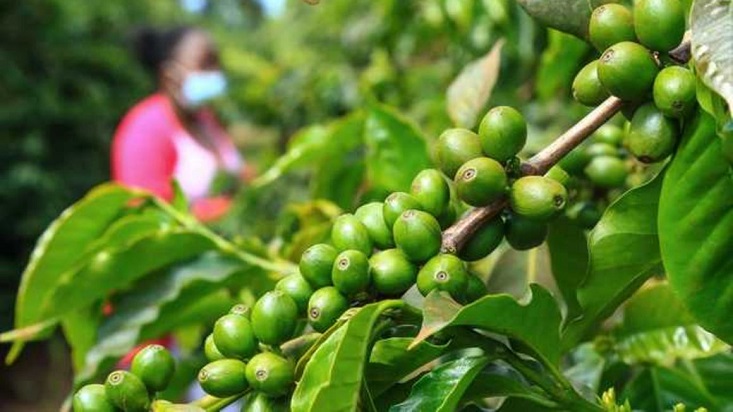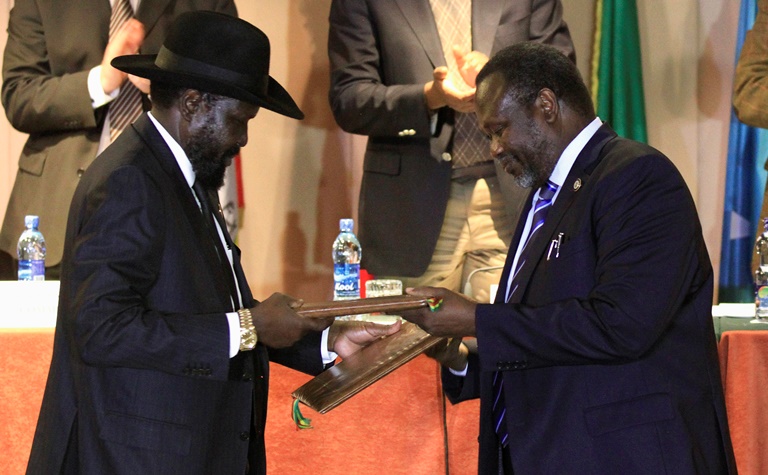A farmer tends her coffee bushes in Nyeri. PHOTO/JOSEPH KANYI/NMG
Kenya’s coffee production in the 2022-23 season is projected to drop by 10 percent to 700,000 bags on the back of rising prices of fertiliser, the US Department of Agriculture (USDA) says in a newly published report that tracks coffee production in the country.
The surge in global fertiliser prices began at the beginning of 2021 due to the impact of the Covid-19 pandemic. The ongoing war between Russia and Ukraine has worsened the situation.
Currently, fertiliser prices in Kenya stand at KSh6,000 (UShs188,581) per 50 kilogramme bag, a 71 percent increase from a year earlier.
The rise in prices is also due to producer countries such as China, Russia and Turkey restricting exports to protect their farmers compounded by heavy consumption demand from India, Brazil and US buying up large quantities, hence reducing available global supplies.
“Kenya’s 2022/23 coffee production is forecast to decrease by 10 percent to 700,000 bags due to lower yields caused by reduced fertilizer application,” the US government said.
“Crop 2022/23 planted area is anticipated to remain flat at 105,000 hectares as new plantings are curtailed by a shortage of coffee seeds.”
The US agency says coffee exports from Kenya in the 2022/23 season will consequently decline to 670,000 bags from 750,000 bags due to lower production.
Data from the Kenya National Bureau of Statistics (KNBS) shows Kenya exported coffee worth KSh26.1 billion (UShs820.3bn) in 2021, up from KSh22.2 billion (UShs697.7bn) in 2020.
Kenya is the fifth-largest coffee producer in Africa after Ethiopia, Uganda, Cote d’Ivoire and Tanzania, according to the International Coffee Organization.
According to the USDA, domestic consumption of coffee over the period is however expected to increase slightly even as demand growth driven by the recovering hospitality sector is curtailed by lower consumer purchasing power due to high inflation.
“While consumption is forecast to rise as Kenya’s tourism and restaurant sectors recover following the removal of Covid-19 restrictions, growth in domestic consumption will be constrained by high inflation, which is reducing consumer purchasing power,” said the USDA report.
“Coffee consumption is considered a non-essential expense, making it sensitive to changes in purchasing power.”
The Kenya government announced a KSh5.7 billion fertilizer subsidy to partially offset fertilizer prices.
Over 80 percent of Kenya coffee is marketed by co-operatives, while the remainder is sold by corporate and individually owned businesses.
Over 90 percent of coffee in Kenya is sold through the Nairobi Coffee Exchange (NCE). The rest is sold through “direct sales,” which are negotiated contracts between marketing agents on behalf of producers and exporters.
-Business Daily





